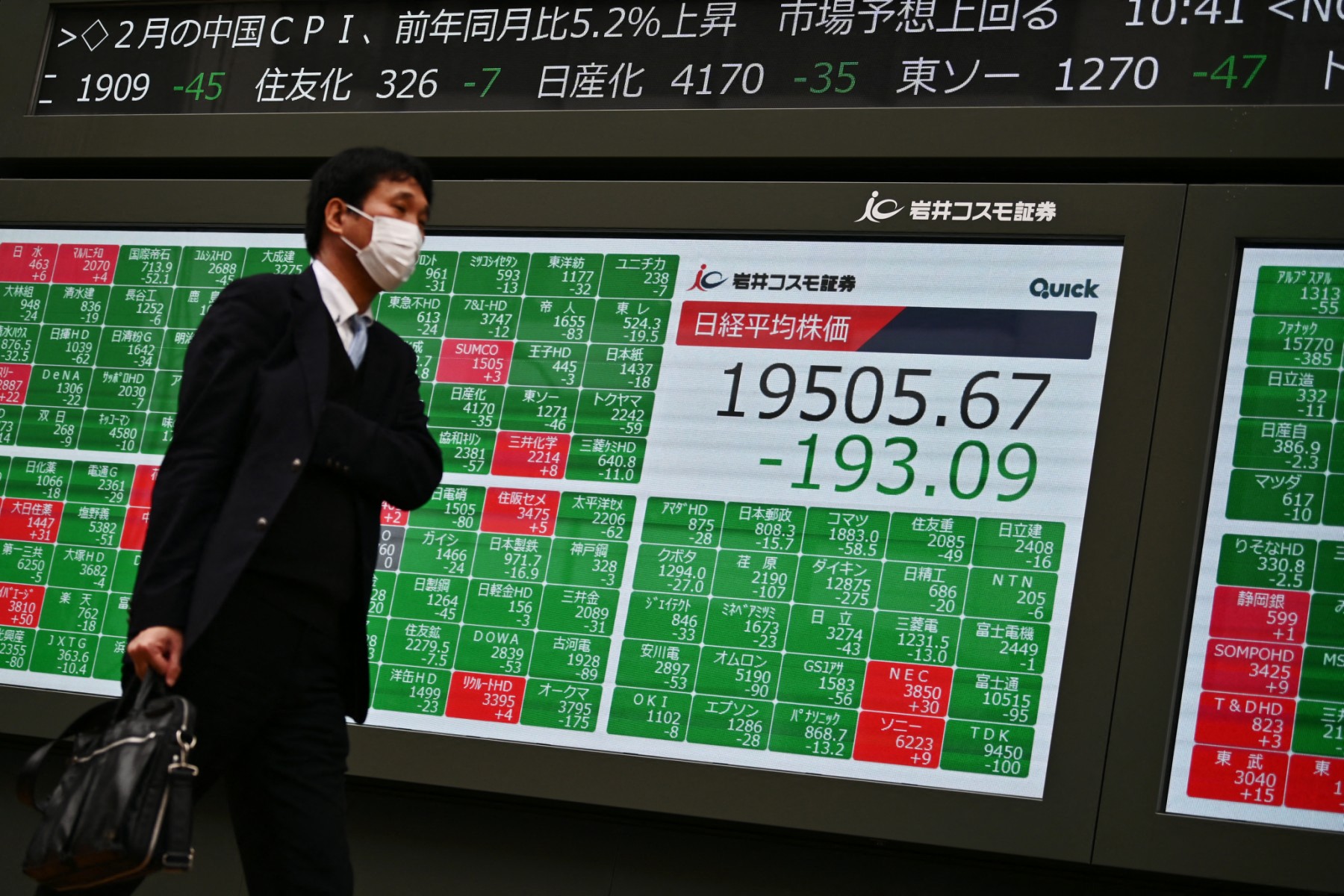Hong Kong — Most markets edged down Thursday after forecast-topping US inflation dealt a blow to hopes for a June interest rate cut and forced traders to re-evaluate the outlook for monetary policy, with a warning that the next move could even be a hike.
The losses tracked a sell-off on Wall Street and saw the dollar strike a 34-year high against the yen, fueling speculation Japanese authorities will step in to support their beleaguered currency.
Figures showing the consumer price index rose 0.4 percent on-month and 3.5 percent on-year were both above consensus for the third month in a row and observers warned the pick-up might not be a blip but could point to a worrying trend.
They also came on the back of other data — most recently a forecast-busting jobs report — suggesting the world’s number one economy was still in rude health despite borrowing costs being at a two-decade high and inflation well above target.
The reading will give Federal Reserve officials more to mull over ahead of their May policy meeting, with their recent guidance of three rate cuts this year now in doubt.
Investors started the year optimistic that the central bank would make six cuts in 2024 — with the first in March — but now they are eyeing two at most, with the chances of a June reduction diminishing.
But some are less hopeful. Apollo Global Management’s Torsten Slok said: “We are sticking to our view that the Fed will not cut rates in 2024.”
And former Treasury Secretary Lawrence Summers said traders must “take seriously the possibility that the next rate move will be upwards rather than downwards”.
Dollar’s 34-year yen high
Still, minutes from the Fed’s most recent meeting showed that while decision-makers were worried about recent figures, they still saw cuts this year.
“Some participants noted that the recent increases in inflation had been relatively broad-based and therefore should not be discounted as merely statistical aberrations,” the Fed said in a statement.
“However, a few participants noted that residual seasonality could have affected the inflation readings at the start of the year.”
And Finalto’s Neil Wilson added that “despite the hot number, there are many reasons why the Fed may still cut in June… but if the market moves too far out of step then the Fed may be forced to wait a little longer”.
The disappointing data sent all three main indexes on Wall Street deep into the red.
Asia followed suit in the morning but some bounced into positive territory as the day wore on while others pared many of their losses.
Hong Kong, Tokyo, Sydney, Singapore, Wellington, Taipei, Bangkok and Manila slipped, while Shanghai and Seoul edged up.
London was flat in the morning, Paris dipped and Frankfurt rose.
“The fallout from the hotter-than-expected US inflation read… will reverberate across regional equity markets (Thursday),” Tony Sycamore, of IG Australia, said.
“Providing a cushion on the downside, weakness in key Asian currencies including the yen and the won, will provide support for the exporters.”
Investors were keeping tabs on Tokyo as the dollar surged to 153.24 yen, the strongest since 1990, on the US CPI reading.
Tokyo authorities have said they would keep their options open on supporting the unit.
However, while top currency official Masato Kanda has blamed speculators for volatility in the dollar-yen exchange, analysts said the latest moves were more to do with the US data.
“It’s clearly a US dollar move and Japanese officials can’t really argue its speculators attacking the yen,” said Peter Vassallo, of BNP Paribas Asset Management.








